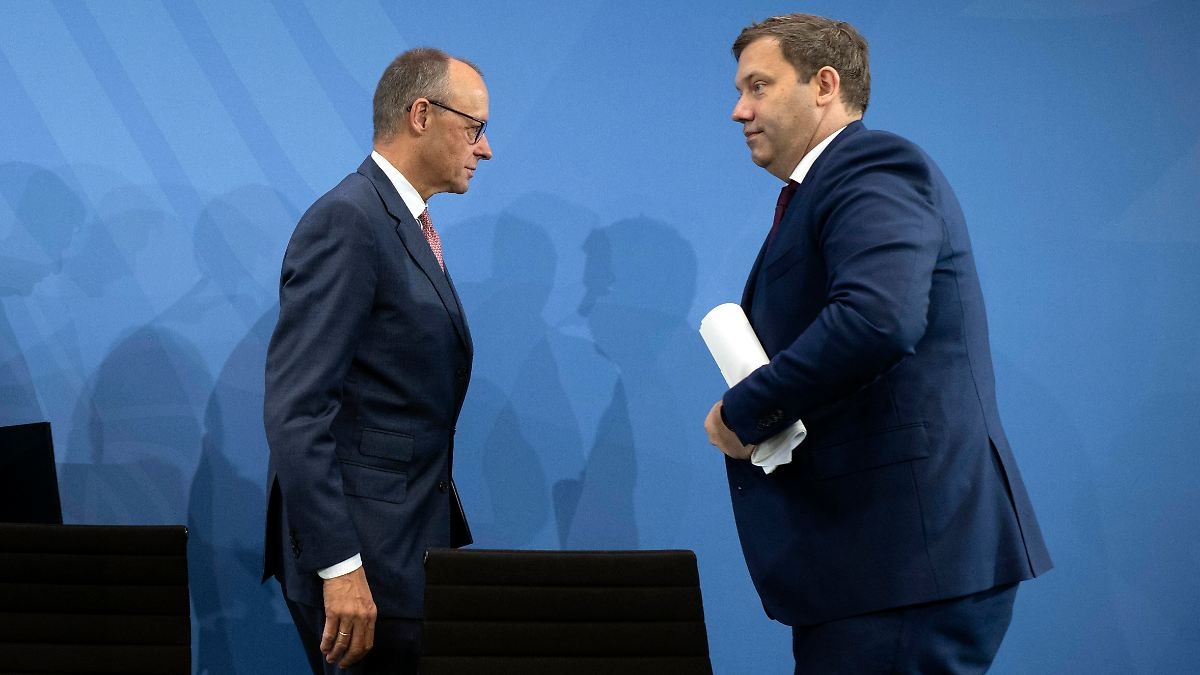Netherlands: No one wants to govern with the unpredictable Wilders anymore

The prevailing opinion is that the outcome of this Wednesday's Dutch election will be decided on television. The protagonists are meeting there for debates about half a dozen times these days. Sometimes the candidates of the four largest parties are among themselves, sometimes the smaller ones are allowed to have their say, after all, there are 15 representatives in parliament. Two years ago, there was a sensation: On the private broadcaster SBS6, the right-wing populist Geert Wilders managed to dupe the social democrat Frans Timmermans – with the help of an angry citizen in the audience who later turned out to be a Wilders supporter. In the days leading up to the election, Wilders' Freedom Party (PVV) doubled its vote total.
Expectations were correspondingly high when the big four met again on SBS6 on Thursday. Another game changer ? Nothing special happened. Wilders's rivals strongly opposed him, portraying himself as a marginalized victim and, as always, recommending only one solution to all problems: an immediate "asylum ban." The Islam critic could use a boost; while his party is still ahead in the latest polls, it remains well below the result that made the PVV by far the strongest party at the end of 2023.
This was followed by a slow, chaotic government formation process, which culminated in a right-wing coalition of four parties – including the PVV, but not under Wilders' leadership, but with the non-partisan top civil servant Dick Schoof as prime minister. The coalition was divided from the start and achieved virtually nothing. There was no progress on the hundreds of thousands of housing shortages and the related nitrogen pollution crisis, nor on the exploding costs of health and care. PVV Minister Marjolein Faber, in turn, failed in her attempt to implement the "toughest asylum law of all time." According to observers, this was due more to her incompetence than, as Wilders complains, to a lack of cooperation on the part of her coalition partners. The end came after just eleven months, when Wilders brought down the government.
Something crucial has changed compared to the 2023 election; you could call it a learning curve: No centrist party wants to govern with the unpredictable Wilders this time; everyone has ruled that out. Therefore, the key question is who finishes second—presumably to form one of those typically Dutch broad coalitions. Currently, it looks as if the Greens/Social Democrats (GL/PvdA) could provide the next head of government. However, almost half of the voters are still undecided.
The left-green coalition senses a glimmer of hope; several major election debates in Amsterdam last week addressed the question of whether and how the Left could finally govern again. The Greens and Social Democrats currently form only a single parliamentary group, and they do not plan to officially merge until next year. Despite initial reservations on both sides—the Greens feared losing the climate issue in a merger; the Social Democrats considered the environmentalists too elitist—the parties have moved toward each other relatively smoothly. After all, their experiment has not yet been tried in any country worldwide.
When others insult, Timmermans arguesAt the helm of the Green-Social Democrats is Frans Timmermans, 64, certainly no new face. The former foreign minister and later EU Commission vice president initially felt uneasy about his new job when he returned from Brussels to The Hague in 2023. Now, in Parliament, he bravely, though rarely humorously, counters when Wilders and other right-wing extremists once again blame migrants and "left-wing elites" for all the world's misfortunes. When others insult, Timmermans argues.
The fact that he also likes to flaunt his erudition and intelligence has reinforced his reputation as a nerd. That's not something you have to like. However, the buckets of scorn and contempt that right-wing opinion makers are heaping on "Frenske" on all channels far exceed any tolerable level. He can still endure it, but in the long run, it threatens to damage him. As prime minister, the Limburg native could, thanks to his political experience, give the Netherlands a bit more international clout.

In light of the threat posed by Russia, the EU Commission is presenting a detailed plan: Europe should be able to defend itself against an attack by 2030. But can this really work?
Even a Christian Democrat can hope for the position, something that hasn't been the case for a long time. Henri Bontenbal, 42, took over as head of the Christian Democratic Appeal (CDA) after a period of great turmoil. A leadership and policy dispute led to the split of a group around Pieter Omtzigt and a brutal collapse in the last election. The five members of his group fit in a car, Bontenbal likes to joke. Omtzigt has since retired from politics due to illness, and his New Social Contract party, which entered into a coalition with Wilders, is unlikely to retain a single one of its 20 MPs. Most NRC voters seem to want to return to the CDA.
Bontenbal presents himself as a "nice guy," calls for more objectivity and less hostility in parliament, pleads for a return to values and norms, and insists on "decency." Twenty years ago, the same phrase was ridiculed for then-CDA Prime Minister Jan Peter Balkenende. Now it seems to have struck a chord with many disgruntled citizens at a time when verbal extremists like Wilders set the tone—and competitors often have no choice but to pay him back in kind. Thus, politicians constantly hurl outrageous remarks at each other both inside and outside parliament. This climate, as the anti-terror unit NCTV has confirmed, among others, encourages political violence, such as the right-wing extremist demonstration in The Hague in September that escalated into a street battle with the police .
Hardly anyone has any trust in politics anymore – just four percentLast week, however, Bontenbal defended the right of religious schools to ban homosexual relationships. This apparently scares off many voters and drives them to the almost-dismissed D66 party, which is experiencing a boom. The social liberals were considered a prime example of out-of-touch progressives. They are now attracting more votes than the right-wing liberal VVD, led haplessly by Dilan Yeşilgöz, which provided Mark Rutte with the government for 13 years.
D66 leader Rob Jetten has shifted the party slightly to the right. He demands that the Dutch flag be reappropriated as a symbol and that people be allowed to be proud of the country. He rants about "woke" rainbow zebra crossings and uses significantly harsher language in migration policy. Education, innovation, and climate are his themes, and he unashamedly spreads optimism, following the motto: Don't let Wilders drive you crazy, we're better.
Where does the Netherlands stand this autumn? A pessimistic view is obvious. If a politician like Wilders, who relies solely on destruction, can be so persistently strong, even dominant, when governments only last for a short time, then something must be wrong. The country is "broken," writes Kustaw Bessems of the newspaper Volkskrant , and it will be difficult for the centrist parties to put it back together. During the Rutte era, these parties have destroyed a great deal of public trust in politics; according to one poll, it stands at four percent. Hardly anyone seems to believe in the ability of the established parties to provide solutions to the most pressing problems.
This makes it easy for populists, who like to magnify people's fears to the point of apocalyptic proportions, to find their way around. The Netherlands doesn't seem to have found a remedy against them either. Rather, the entire political discourse has shifted to the right, not least in the media. Particularly striking is the fact that the formerly slightly left-leaning political talk shows have clearly changed sides. Sometimes one even hears warnings that democracy is under threat and its institutions are being undermined.
But there are also optimists. Like Casper Thomas from the weekly newspaper De Groene Amsterdammer . "I'm past the peak of worry," he says, surprised at himself. The experiment with Wilders in government was a risky one – and, as everyone can see, failed. "Now we're heading back to the center." And there, he says, there's no threat of the oft-invoked "uniformity." Rather, there are fundamental differences between the parties on issues like Ukraine, attitudes toward Israel, and migration. "Actually, the political system works quite well."
süeddeutsche





